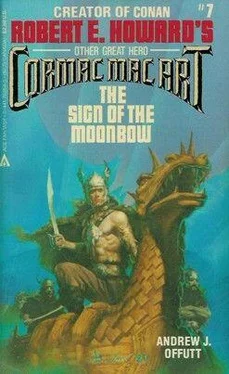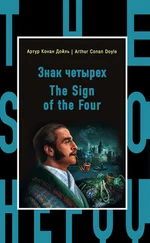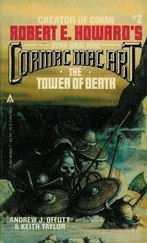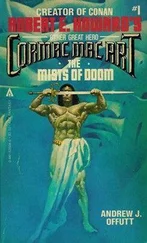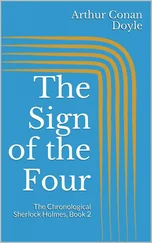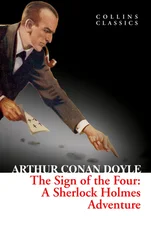Andrew Offutt - The Sign of the Moonbow
Здесь есть возможность читать онлайн «Andrew Offutt - The Sign of the Moonbow» весь текст электронной книги совершенно бесплатно (целиком полную версию без сокращений). В некоторых случаях можно слушать аудио, скачать через торрент в формате fb2 и присутствует краткое содержание. Жанр: Фэнтези, на английском языке. Описание произведения, (предисловие) а так же отзывы посетителей доступны на портале библиотеки ЛибКат.
- Название:The Sign of the Moonbow
- Автор:
- Жанр:
- Год:неизвестен
- ISBN:нет данных
- Рейтинг книги:3 / 5. Голосов: 1
-
Избранное:Добавить в избранное
- Отзывы:
-
Ваша оценка:
- 60
- 1
- 2
- 3
- 4
- 5
The Sign of the Moonbow: краткое содержание, описание и аннотация
Предлагаем к чтению аннотацию, описание, краткое содержание или предисловие (зависит от того, что написал сам автор книги «The Sign of the Moonbow»). Если вы не нашли необходимую информацию о книге — напишите в комментариях, мы постараемся отыскать её.
The Sign of the Moonbow — читать онлайн бесплатно полную книгу (весь текст) целиком
Ниже представлен текст книги, разбитый по страницам. Система сохранения места последней прочитанной страницы, позволяет с удобством читать онлайн бесплатно книгу «The Sign of the Moonbow», без необходимости каждый раз заново искать на чём Вы остановились. Поставьте закладку, и сможете в любой момент перейти на страницу, на которой закончили чтение.
Интервал:
Закладка:
The flames leaped, trembled, seemed to execute a ghastly dance of death, appeared to flow like some horrid liquid in halfscore everchanging hues. The constant roar of well-fed inferno rose to the sound of booming surf, of steady thunder closeby. Now no cries came from within the fiery circle. Silent too was the grim statue that was Cathbadh, his robe of enameled autumn leaves no longer ludicrous, but a symbol both of life and of death-dealing flame.
The old man stood silently, rigidly, and Cormac saw that he quivered all over in his stiffness. Not even his so-pale pupils showed now in their sockets; the eyes of Cathbadh the protector of Daneira were rolled back so that he had become something from which children would flee.
The protector of Daneira was Protector indeed. The wolf was far from toothless.
Sorcerous flames lapsed. The wall of dancing fire lowered. For the first time as he turned again to stare at the doom-fire of Snorri’s band, Cormac realized that he had felt but little heat. Yet it was fire. The man at his feet was burned; the ring looked like fire and sounded like fire, and beyond the lowering flames the Gael could see how treetops seemed to shimmer. Billowing gouts of black smoke boiled up-and up, lofting into the air without rolling over Daneira.
The sorcerous inferno died.
Cormac mac Art stared, paced forward, stared.
The Norsemen were gone. In the space of a few minutes, close onto twoscore men had been consumed. More, they’d been turned into ash -and the puddles of hideous bubbling smoking slag that Cormac realized with a chill horripilation of every limb was formed of melted axes, and swords, and the armour boiled from living men as their skin and hair and even bones burned away to ash.
Cormac turned slowly, to gaze at Cathbadh.
The stiffly upraised arms lowered. The staff fell to the ground. Slowly Cathbadh’s head came down, and for a moment his eyes focused, or seemed to focus, on the horror he had wrought in protection of his city of children. Then the man crumpled and fell to lie as if dead.
Only the Gael was close enough to see that Cathbadh’s chest rose and fell, and he knew that the wizard had utterly exhausted himself in the saving of Daneira.
Chapter Four:
The King of Daneira
It was the stranger to Daneira who carried the unconscious wizard to his own bed.
Amid the uproar of the people, a passing thin man had come to Cormac and the fallen Cathbadh. A long robe of plain homespun was upon him, undyed, and girt with a belt to which had been fastened lacquered oak leaves, all green. By this and the fact that he carried a staff surmounted by the three-quarter moonsign of Danu, though it was of yellow-painted wood rather than gold, Cormac took him to be another servant of the goddess. He bent at once to take Cathbadh’s hand and place an ear to his chest.
“He lives,” Cormac said. “You are a fellow servant of Danu?”
The man, perhaps in the third decade of his life, looked up. “I am his apprentice. He bade me stay behind when word came of your presence. Now he has exhausted himself.” He too stared, at the strange colour of Cormac’s eyes.
“Ah. Show me where to bear him, then, for this man must receive care, and live forever!”
The apprentice gazed at the tall man for a time, then nodded. He rose and watched while Cormac easily lifted the wizard-priest, whose strange robe clacked.
“I am Flaen. Follow.”
Cormac followed Flaen-and by the time they reached their destination Sinshi was with them, followed by a crowd of excited people. At the door of a house set apart and decorated only with a three-quarter moon on the lintel, Flaen stepped aside, motioned Cormac within, and stepped before the doorway.
“This day has Danu saved us all, and through the power of Cathbadh. Now he is but exhausted; he lives. Go and mourn the dead-and see about the business of… cleaning up. The metal can be of value to us.”
They dispersed, while within a dim, unlit room Cormac laid Cathbadh on a long cot set against a wall, though he noted it bore only a spread, cloth worked with moon-signs, and no padding or cushions. Wondering whether to cover the man or even to think about undressing such a one, he glanced at the doorway. Flaen entered, with two others.
One was Sinshi. She rushed to Cormac, and took his arm-the left. He patted her hand without looking at her.
The other wore a robe of fine white wool, girt with gold. Around his muscular neck he wore a golden chain, which suspended the sign of Danu on his chest. He was the first person Cormac had seen who was armed; the fellow wore a sheathed dagger slung from his belt of gold cloth. A symbol of office, or power? His hair was a deep brown, and so too his eyes; mustache and beard were auburn. No small man was he, in build, though he would be only average outside of these short, slight people.
His name was Uaisaer, and he was king over the Daneirans. Again Cormac noted the emphasis on woodworking; the king’s name meant Noble Wright, Noble Carpenter. And he was the ninth of that name to rule as king over these people. With no strong hand and no pomp, Cormac decided, noting that the king was dressed relatively simply-and barefoot-and came with no guard or retinue or even adviser. Further, he introduced himself, for Flaen went straight to his master.
The room held one chair, nicely wrought but unornamented, and a table and a bench, and naught else but shelving and things of strangeness hanging upon the walls. An undoored doorway led to another room, but Cormac had the feeling that Cathbadh had few possessions. He wondered about the barefoot king.
On all the ridge of the world, surely there were no people so strange and different as these of Daneira!
Again Cormac mac Art was heartily welcomed and profusely thanked for having saved Consaer and “this nubile young maid who is so necessary and valuable to our people.”
He wondered-was she valuable because she was nubile, or was there more he did not know? While the matter was intriguing in its cryptic nature to the Gael and thus of considerable interest, he set it aside in his mind, with other questions to be asked later.
He was hardly comfortable. He had watched at work a most potent mage indeed-and the man had then collapsed and had to be carried here like- one dead. Once again Sinshi was treating his arm as a possession-though at least she remembered, and confined her viny clinging to the shield-arm! Too, Cormac mac Art was not comfortable in the presence of any king. He had known several, and all had betrayed him, including that former High-king of Eirrin itself. Cormac mac Art had served royalty and he had been served badly in return. He was no lover of kings.
Sinshi crowded her rescuer. Her little hands seemed bent on piercing his armour, so closely and tightly did she cling, her hands so small against the Gael’s mailed sleeve and muscular arm.
“You are twice welcome here,” Uaisaer, king, said. “What would ye have of us?”
“Lord king, my thanks-”
“I am called Uaisaer.”
Cormac nodded. Not such a bad king at that, mayhap-though he stood back and allowed an old man to fight his battles without so much as ordering his people to withdraw or attack. Still-with such a man as Cathbadh about, what need was there of armour and shields, walls and royal orders?
“My thanks, Uaisaer. In truth, it’s others I have with me, a druid of Eirrin and a woman-” Sinshi’s hands tightened-“and two men, and-”
“Such as yourself?” The king was most interested.
“Aye, weapon-men, one of Eirrin and-oh. No, Lord k-Uaisaer, not with my hair and skin. The hair of one, whose name is Brian, is flax, and the other, him who is of the Danes and taller than I, constructed like a barrel, has hair and beard on him like the red of the rowan-berry. With us too is… a captive. A dread mage of evil, of whom I would talk with Cathbadh.”
Читать дальшеИнтервал:
Закладка:
Похожие книги на «The Sign of the Moonbow»
Представляем Вашему вниманию похожие книги на «The Sign of the Moonbow» списком для выбора. Мы отобрали схожую по названию и смыслу литературу в надежде предоставить читателям больше вариантов отыскать новые, интересные, ещё непрочитанные произведения.
Обсуждение, отзывы о книге «The Sign of the Moonbow» и просто собственные мнения читателей. Оставьте ваши комментарии, напишите, что Вы думаете о произведении, его смысле или главных героях. Укажите что конкретно понравилось, а что нет, и почему Вы так считаете.
